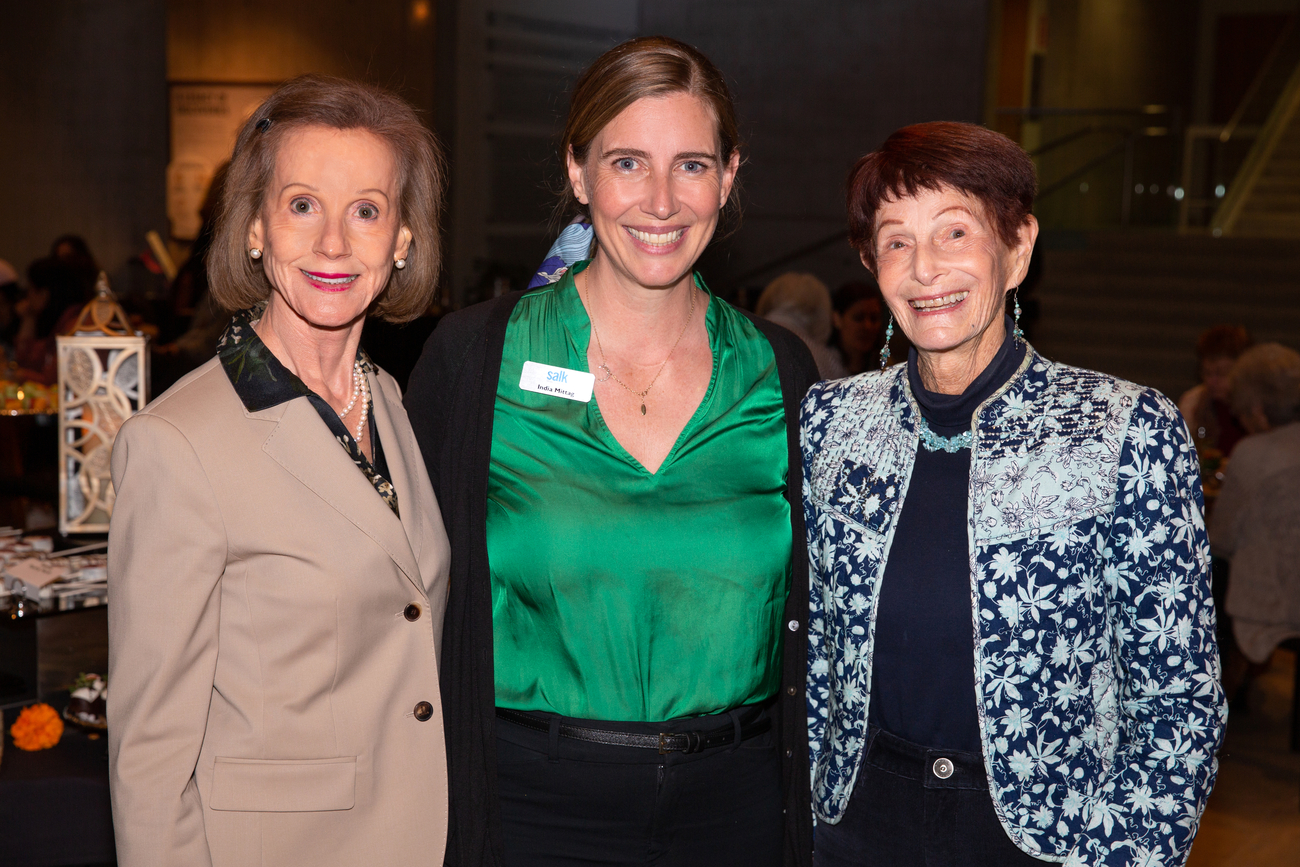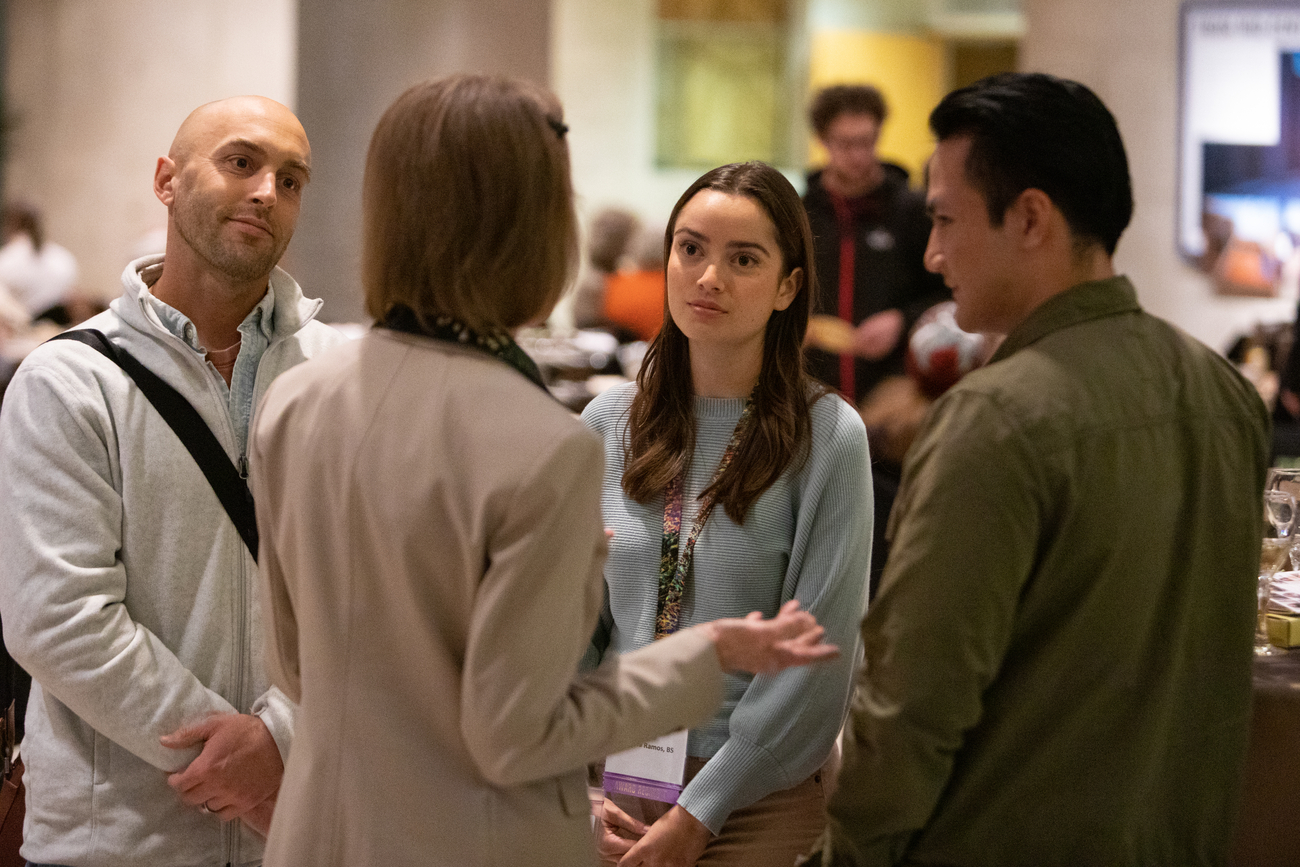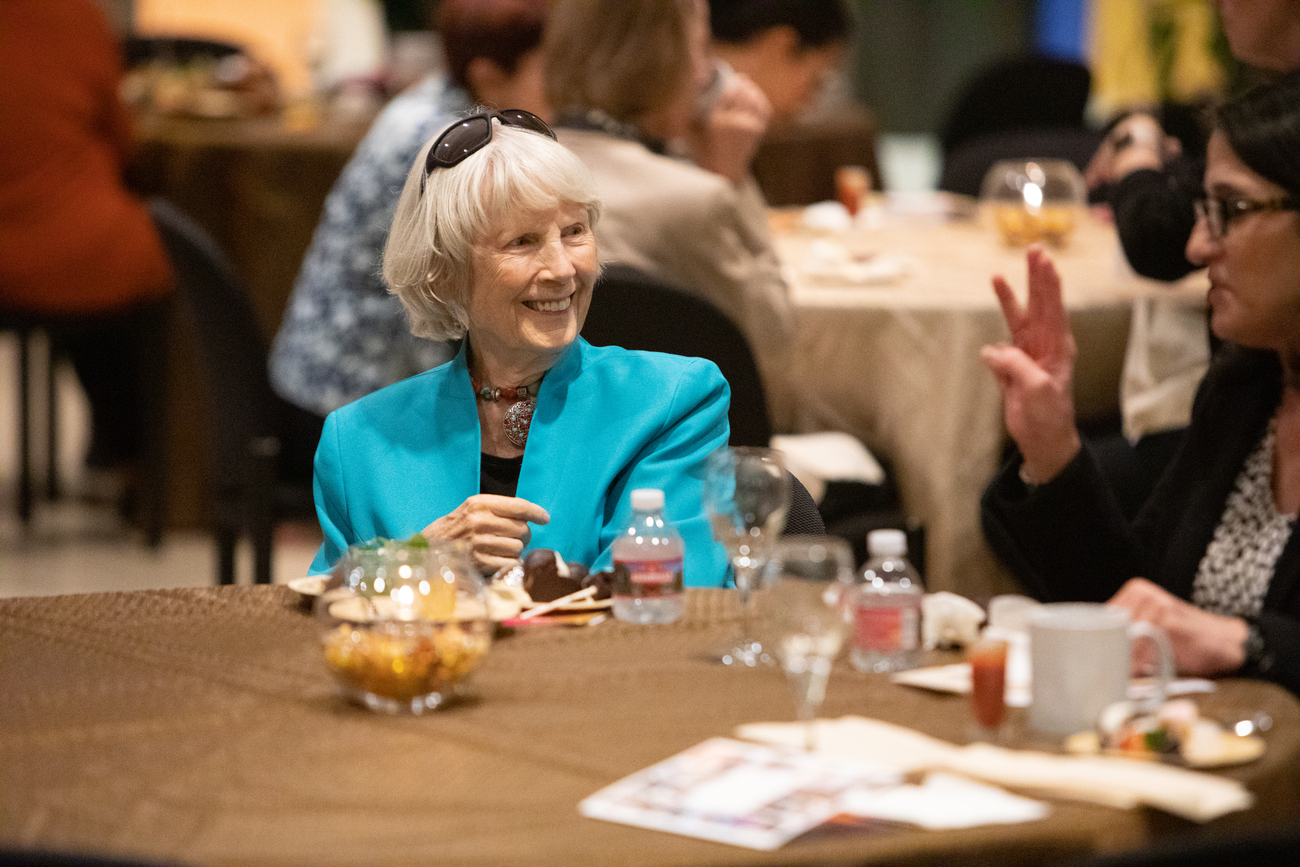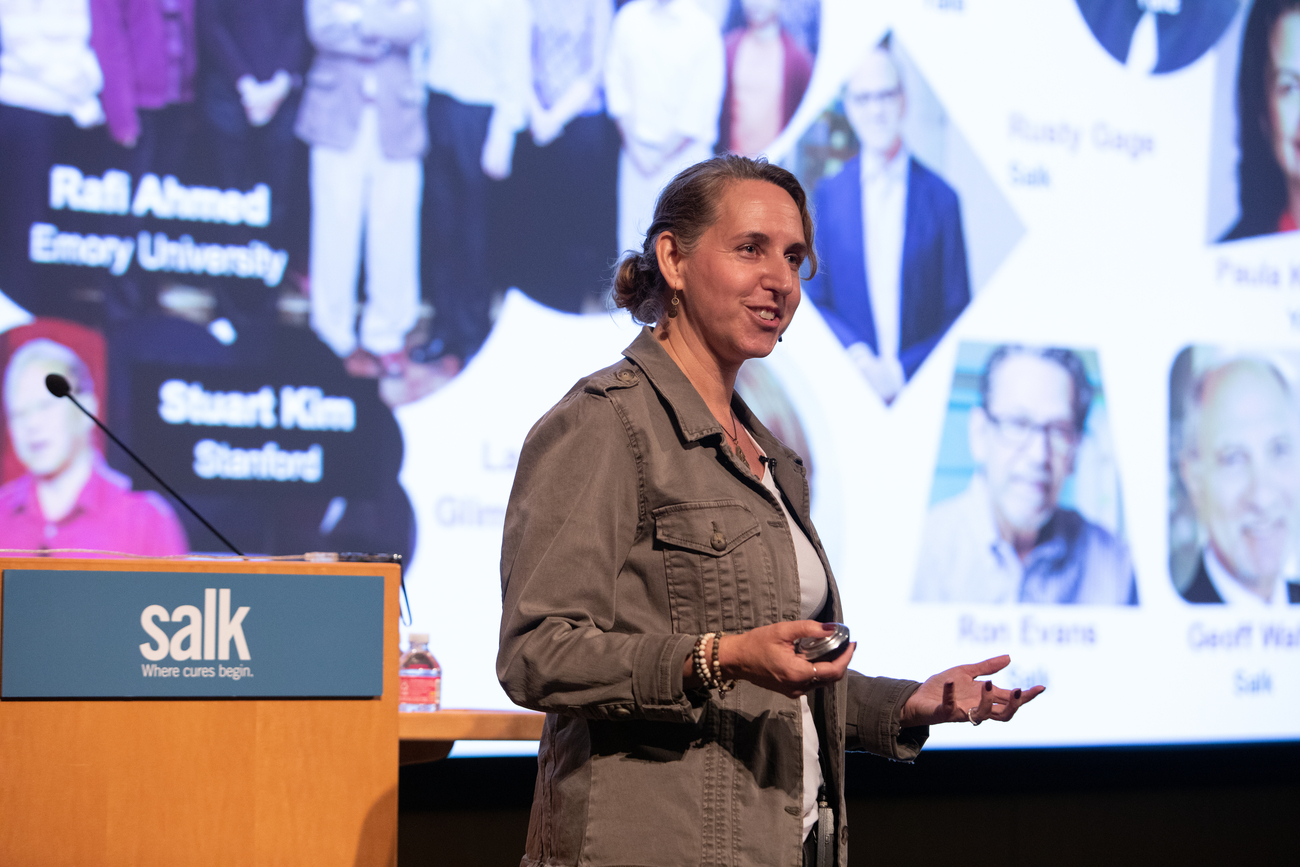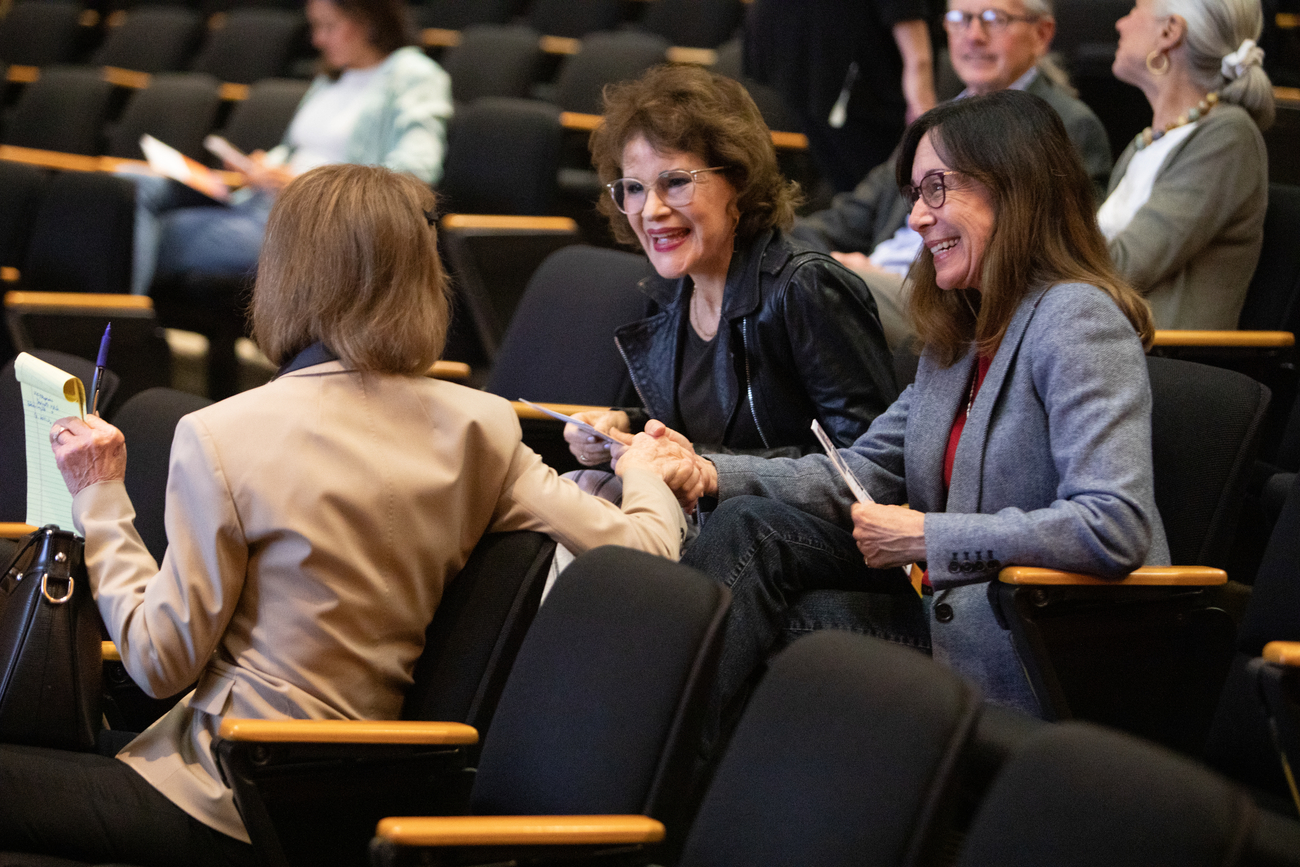Women and Science
Salk Women & Science is an ongoing program that provides a dynamic and vibrant forum in which community and business leaders and Salk’s women of science have an opportunity to gather as friends, entrepreneurs and researchers to discuss the latest discoveries in science and technology while inspiring more women to embrace scientific research as a focus of personal and philanthropic interest.
Women Faculty at the Salk Institute
2023 Salk Women & Science Research Award Recipients
The Women & Science Research Awards provide crucial support to graduate students and postdoctoral researchers to pursue high-risk, high-reward research in stages too early to attract traditional funding. The awards are targeted towards supporting future scientific leaders who will also actively foster the increased participation of women and girls in science.

Hoda Ahmed
Shaw Lab

Megan Anderson
Chalasani Lab

Morgan Black
Dixon Lab

Morgan Black
Dixon Lab

BEcky Chinn
Metallo Lab

Sarah Fernandes
Gage Lab

Courtney Glavis-Bloom
Reynolds Lab

Natanella Illouz-Eliaz
Ecker Lab

Anvita Komarla
Towers Lab

Raffaella Lucciola
Gage Lab

Hannah Mandias
Hargreaves Lab

Laura Martins
Law Lab

Payel Mondal
Towers Lab

Charlotte Rambla
Busch Lab

Amanda Wacker
Kosuri Lab

April Williams
Integrative Genomics and Bioinformatics Core

Jingting Yu
Integrative Genomics and Bioinformatics Core
Take Action
Science is a collaborative pursuit, and we invite you to join us in accelerating life-changing discoveries.
















